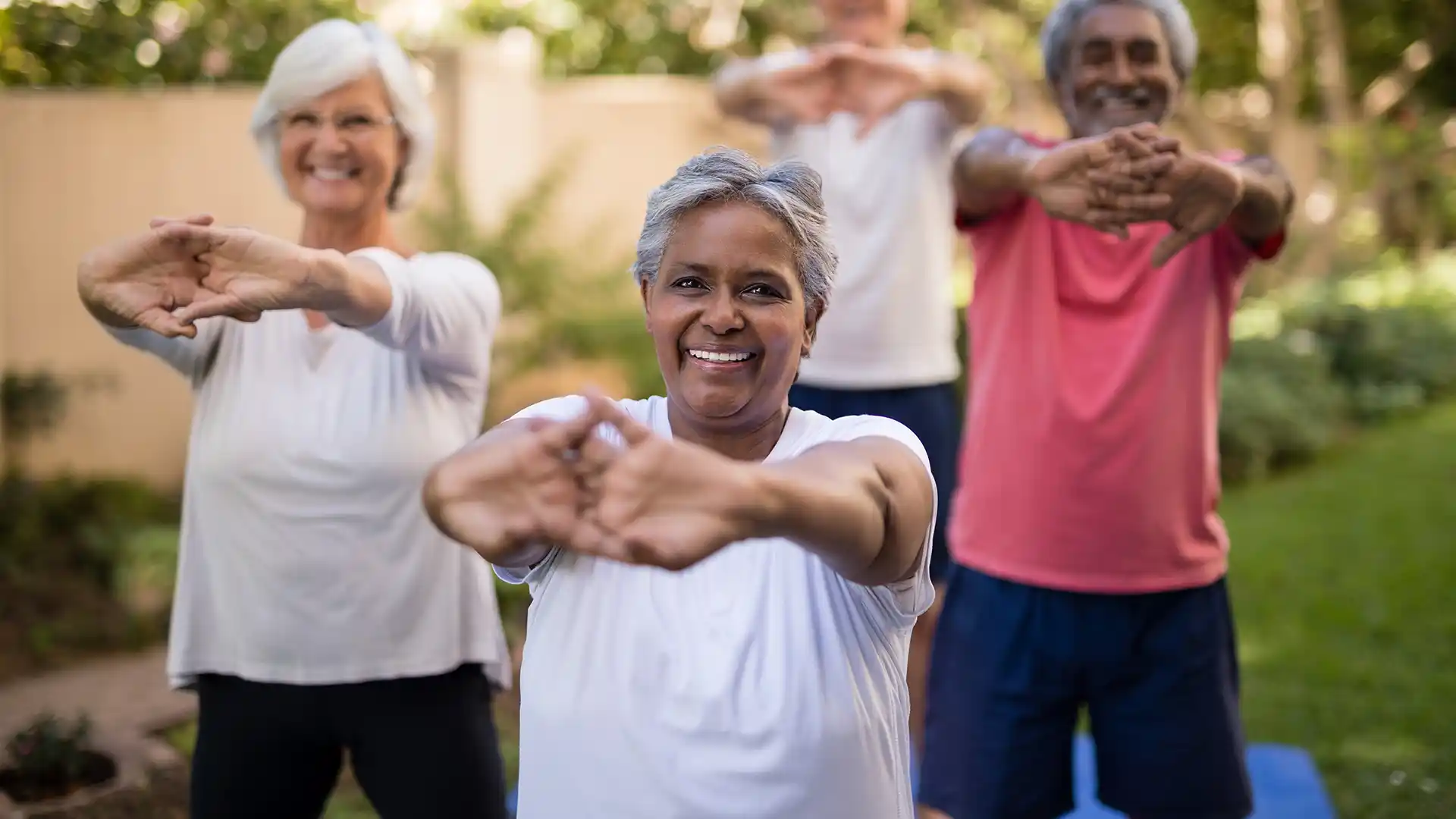As we grow older, two circumstances can greatly impact maintaining health and independence—falling and the fear of falling.
Falling is a common experience in the older adult population. It’s estimated that more than 1 in 4 people aged 65 + will fall each year in the U.S. For those who have broken a bone, sprained a muscle or even just bruised their ego, caution should be taken against developing a fear of falling, even after a full recovery is made. However, this apprehension can also occur for those who haven’t fallen but worry about the consequences.
How Fall Prevention Myths Can Increase the Risk
One common myth many people believe is that falling is a natural part of aging and can’t be prevented. The National Council on Aging has identified several additional myths about falling that can actually increase the risk of occurrence.
Consider—and challenge—the following myths:
1. Limiting Activity Will Help Prevent Falling
Physical activities help you stay independent, as well as gain strength and range of motion. These reduce your risk of falling. Social interaction is also good for both physical and cognitive health.
2. Muscle Strength Can’t Be Regained
It’s true that we do lose muscle as we grow older, but exercise can help you gain back strength and flexibility. There are many benefits to exercise—and helping to prevent falls is one of them.
3. Staying Home Will Reduce the Risk of Falling
Not only will your risk of becoming socially isolated increase, but over half of falls occur in the home. It’s a better idea to remove tripping hazards and install handrails and grab bars.
4. Medications Don’t Increase Fall Risks
Different medications or a combination of prescriptions can have side effects of dizziness or tiredness. Talk to your medical team or pharmacist about any increased risk to balance.
5. Your Vision Doesn’t Affect Falling
It’s estimated that older adults with vision impairment are more than twice as likely to fall than those without visual problems. Keep your yearly eye exams and make sure your prescription eyewear is up-to-date.
6. Using a Walker or Cane Will Make You More Dependent
Many older adults believe that using assistive equipment will cause them to become more reliant. However, these devices can help keep you not only safe but mobile as well.
7. Telling Your Family About Falls May Cause You to Lose Your Independence
Many older adults avoid sharing their falling concerns as they fear it will trigger discussions about being unable to live alone. Families may hesitate to worry their loved ones with their own concerns. However, conversations can lead to making the home safer and allow maintaining mobility longer.
Fall Prevention: Steps You Can Take
Becoming proactive in fall prevention can boost your ability to stay on your feet. The following are a few actions you can take to gain strength and balance. Talk to your medical team for additional tips.
1. Exercise for Strength and Balance
Work with your doctor or physical therapist to create an exercise program that helps you remain steady on your feet, which is critical in preventing falls. Consider yoga, Pilates or tai chi.
2. Stay Active
Remaining active can make you stronger and more flexible—reducing your risk of falls—and has major benefits for your overall physical health and cognitive well-being.
3. Perform a Safety Audit
Walk through your home and look for anything that may be a tripping hazard. Ensure there are handrails for any steps and stairs as well as grab bars in bathrooms.
4. Get Regular Check-Ups
Ensure you have your vision checked at least once a year for updated prescriptions. Maintain a healthy blood pressure and talk to your doctor about any medication side effects.
5. Make the Right Practical Choices
Prevent falls by choosing the right shoes and not walking on stairs or floors in socks that could make you slip. Staying at home when it’s icy outside can also help. Standing slowly from a sitting position can maintain blood pressure and minimize dizziness.
6. Talk to Your Medical Team About an Assistive Device
Using a cane or walker can help you feel steadier when walking. However, it’s essential that the size and fit are correct and that you know how to use it properly. A physical or occupational therapist can help.
How an Independent or Assisted Living Community Can Minimize Falling Risks
One of the many advantages of an independent or assisted living community is that they are move-in ready for accessibility. No renovations are needed as the private residences and common areas focus on safety and are age-friendly. You’ll also have access to exercise classes, monthly activities and the reassurance of knowing someone is there if help is ever needed.
About Presbyterian Village North
Our community was designed with every level of living so you can have true continuity to your lifestyle—with no need to move away from everything familiar if the need for a higher level of care arises. What’s more, whether the need is for Assisted Living, Memory Support, Long-Term Nursing Care, Short-Term Rehab, or even Hospice or Respite Care, your life can continue to be as full as possible. The PVN community has countless ways to engage, grow, and thrive, not to mention enjoy great dining! We’re here to create a beautiful life for all of our residents—including you.

